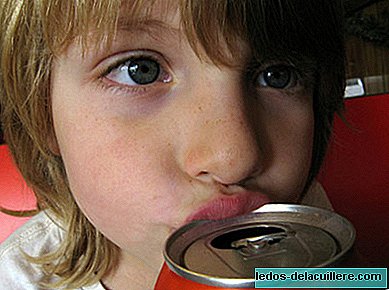
Male infertility is the inability to cause a pregnancy, which is often due to a low sperm count. But the fact that pregnancy takes time to achieve, having ruled out female fertility problems, does not necessarily mean that the man is sterile.
If after a semen analysis that offers data about the quantity, mobility and shape of the sperm gives normal results (the sperm have a normal shape and mobility), it is likely that the fertility of man is normal and that in the next "attempts" pregnancy arrives.
But also the test may detect a low sperm count, sperm that does not move or is not fast enough (and in this case dies before reaching the ovule), sperm that is not formed properly or seminal fluid that is very dense (sperm cannot move easily).
These are frequent causes of male infertility, which have to do with the excess or insufficiency of the hormones that guide sperm production. Another cause of male infertility is a problem with ejaculation. In some cases, the infertility reason is unknown: it is called idiopathic infertility.
In cases of male infertility of idiopathic or unknown origin, the reasons that prevent the union of the ovum or oocyte with the sperm to give rise to the embryo are ignored.
Whatever the diagnosis, it must be made by a medical professional who attends to the history of the man and the analyzes performed on the semen samples. From here, you can also try several treatments to treat male fertility problems, depending on the case (surgery, medications, hormonal treatments ...).
Another option to achieve a woman's pregnancy is to resort to semen donors and perform an artificial fertilization (insemination, in vitro fertilization).

Possible causes of male infertility
The causes of male infertility They are very varied. There are some risks of infertility or decreased sperm quality in man:
- If he has received chemotherapy or radiotherapy for cancer treatment.
- If you have been exposed to environmental toxins, such as lead, pesticides ...
- Male infertility is often due to hormonal alterations present in various diseases of the endocrine system (Kallman syndrome, isolated testosterone deficit, hypothyroidism ...).
- Some infertile men have an alteration in their chromosomes (Klinefelter syndrome, XYY syndrome or Noonan syndrome) or suffer from azoospermia.
- Obesity in men also hinders fertility. Overweight has been clearly linked to poor sperm production, so men should try to have an adequate body weight.
- In relation to the previous point, a poor diet, a poorly balanced diet, are related to a lower production of sperm (lack of antioxidants and folates ...). Remember that the father's diet before conceiving is also important to avoid defects in the baby.
- Excessive alcohol consumption It is also related to lower fertility. Drinking many alcoholic drinks acts on the hypothalamic-pituitary-testicular axis. Testosterone levels are affected, as well as the quality and quantity of sperm.
- The use of marijuana and other drugs also affects the quality of semen.
- Tobacco: Smoking is harmful to health in many aspects, also in this. Therefore it is better that men who try to conceive consider smoking cessation as soon as possible. It will also be easier not to harm the woman when she is pregnant.
- Certain lesions in the scrotum and testicles, duct obstruction or having a testicle that does not descend.
- It is also related to infertility to have given a lot of heat to the testicles by wearing very tight clothes, holding the laptop between the legs or by swimming or bathing in hot water frequently.
- The use of certain drugs, such as cimetidine, spironolactone and nitrofurantoin, may involve infertility. There are numerous medications that can have a toxic effect for sperm production (spermatogenesis).
- Leading a sedentary life also reduces semen quality (and obesity often adds to this), so there are studies that relate for example watching too much television with lower fertility.
- Men undergoing very traumatic and occasional stress situations may also see sperm quality altered.
So if you want to be more likely to conceive, you should avoid as far as possible the aforementioned risks. Of course, with some points, such as injuries, genetic alterations or cancer treatment, it is not in our hands, but there are many avoidable risks.
Soon we will see how to optimize male fertility, and we hope that this Review of what is male infertility and its most frequent causes It has helped you to better understand this inability or difficulty in achieving pregnancy.












